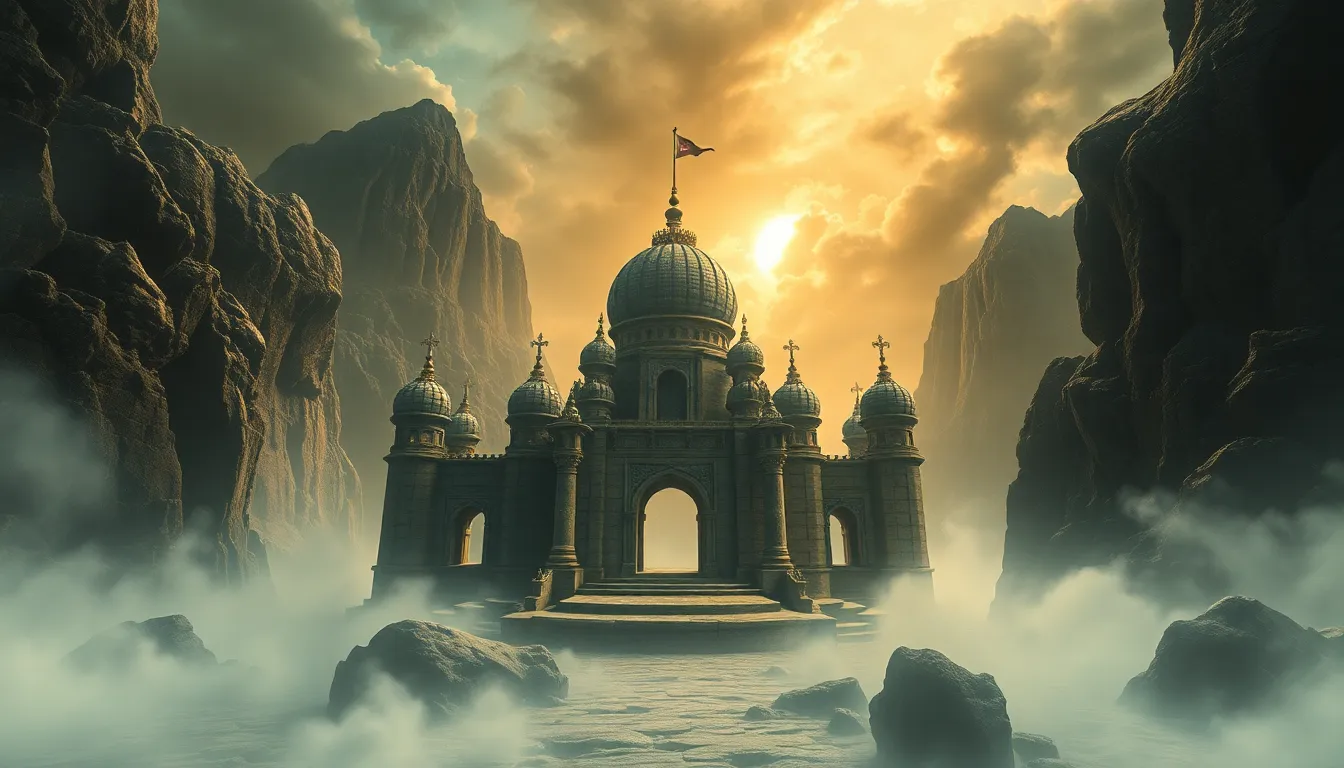The Kingdom of the Lost Legends: Myths of History and Heritage
I. Introduction
The concept of lost kingdoms has fascinated humanity for centuries. These mythical realms, often steeped in mystery and intrigue, invite speculation and exploration. They serve as a bridge between history and legend, enriching our understanding of cultural heritage. Myths and legends play a crucial role in shaping the identity of societies, offering insights into their values, beliefs, and aspirations. This article aims to explore the realm of lost kingdoms, examining their characteristics, historical contexts, and cultural significance, while also assessing the modern implications of these age-old tales.
II. Defining Lost Kingdoms
Lost kingdoms are typically characterized by their mysterious disappearance, often attributed to natural disasters, wars, or the passage of time. These narratives are imbued with elements of wonder, often suggesting advanced civilizations that vanished without a trace. Some famous examples include:
- Atlantis: A highly advanced civilization described by Plato, believed to have sunk into the ocean.
- El Dorado: The fabled city of gold sought after by explorers in South America.
- Mu and Lemuria: Hypothetical lost continents proposed to have existed in the Pacific and Indian Oceans.
The role of archaeology is paramount in uncovering these lost civilizations. Excavations, carbon dating, and advanced imaging technologies have contributed to the understanding and verification of many historical claims surrounding these mythical kingdoms.
III. The Intersection of Myth and History
Myths often serve as cultural vessels that transmit the values and experiences of past societies. They can provide a framework for understanding ancient communities, their governance, social structures, and interactions with their environments. However, distinguishing historical fact from mythical storytelling can be challenging. The interplay of myth and history is complex, as illustrated by several case studies:
- The Epic of Gilgamesh: While rooted in historical figures, it incorporates mythological elements that reflect the beliefs of ancient Mesopotamia.
- The Trojan War: Once considered purely mythological, archaeological evidence suggests a historical basis for the events described by Homer.
These instances highlight how myths can be interwoven with historical facts, offering a richer narrative tapestry of human experience.
IV. Cultural Significance of Legends
Legends play a vital role in shaping national identity and cultural heritage. They provide a sense of belonging and continuity, often becoming central to a nation’s storytelling tradition. The preservation of these narratives is largely attributed to oral traditions, which serve to keep history alive through generations. The impact of legends on contemporary culture is evident in:
- Literature: Many authors draw inspiration from legendary tales, reinterpreting them for modern audiences.
- Arts: Visual artists often depict scenes from myths, exploring cultural themes and historical contexts.
- Festivals: Many cultures celebrate legends through festivals that commemorate their heroes and historical events.
V. The Role of Geography in Myths
Geography significantly influences the creation and evolution of myths. The locations of natural landmarks—mountains, rivers, and oceans—often serve as backdrops for legendary tales. For instance, the Himalayas are frequently featured in myths from various cultures, symbolizing the abode of gods or the realm of the dead. Moreover, regional variations of similar myths can provide insights into the local cultures and environments. This geographical context enriches the understanding of myths and underscores the interconnectedness of human experiences across different societies.
VI. Analysis of Major Lost Kingdom Myths
Among the most compelling lost kingdom myths are:
A. The Story of Atlantis
Atlantis, described by the philosopher Plato, is often regarded as the archetypal lost civilization. The narrative speaks of a technologically advanced society that ultimately succumbed to hubris and was swallowed by the sea. Over the years, various interpretations and theories have emerged, prompting countless explorations in search of its remnants.
B. The Legend of El Dorado
El Dorado, the legendary city of gold, has lured explorers for centuries. Its symbolism transcends mere wealth; it represents the pursuit of dreams and the allure of the unknown. The quest for El Dorado reflects human ambition and the often-destructive nature of greed.
C. Other Notable Lost Kingdoms
- Mu: A supposed lost continent in the Pacific, often linked to various myths and spiritual beliefs.
- Lemuria: Similar to Mu, hypothesized to account for species distribution, now largely dismissed by modern science.
VII. Modern Rediscoveries: Archaeological Advances
Recent archaeological findings continue to shed light on lost kingdoms. Advances in technology, such as satellite imaging and ground-penetrating radar, have facilitated the discovery of ancient structures and artifacts. For instance, the ruins of a lost Mayan city were uncovered in Guatemala, revealing insights into its civilization. These discoveries not only enhance our understanding of historical narratives but also challenge preconceived notions about the past.
VIII. Myths in Contemporary Society
The fascination with lost kingdoms has surged in popular culture. From literature to films and video games, these myths are frequently explored and reinterpreted. Notable representations include:
- Literature: Novels such as “The Lost City of Z” and “The Atlantis Gene” delve into the mysteries of lost civilizations.
- Films: Movies like “Atlantis: The Lost Empire” and “Indiana Jones” series highlight adventurous quests for these mythical realms.
- Gaming: Video games often incorporate lost kingdoms as settings, allowing players to explore and uncover their secrets.
This resurgence reflects a collective desire to connect with history and explore the unknown through the lens of creativity.
IX. The Future of Heritage and Legend Preservation
Preserving cultural heritage associated with lost kingdoms poses significant challenges. Factors such as climate change, urbanization, and the loss of oral traditions threaten the survival of these narratives. However, technology and education offer pathways for preservation:
- Digital Archiving: Many organizations are digitizing historical texts and oral traditions to ensure their accessibility for future generations.
- Education Initiatives: Programs aimed at teaching young people about their cultural heritage can foster pride and interest in preserving these stories.
- International Cooperation: Organizations dedicated to heritage preservation are increasingly collaborating across borders to protect shared histories.
X. Conclusion
The significance of lost kingdoms and their myths cannot be overstated. They serve as a testament to human creativity, curiosity, and the quest for identity. These stories connect us to our past, offering lessons and inspiration for the future. As we continue to explore and preserve our heritage, it is essential to recognize the enduring power of these narratives in shaping our understanding of who we are. The call to action is clear: we must further explore, celebrate, and protect the rich tapestry of legends that define our cultural legacies.



